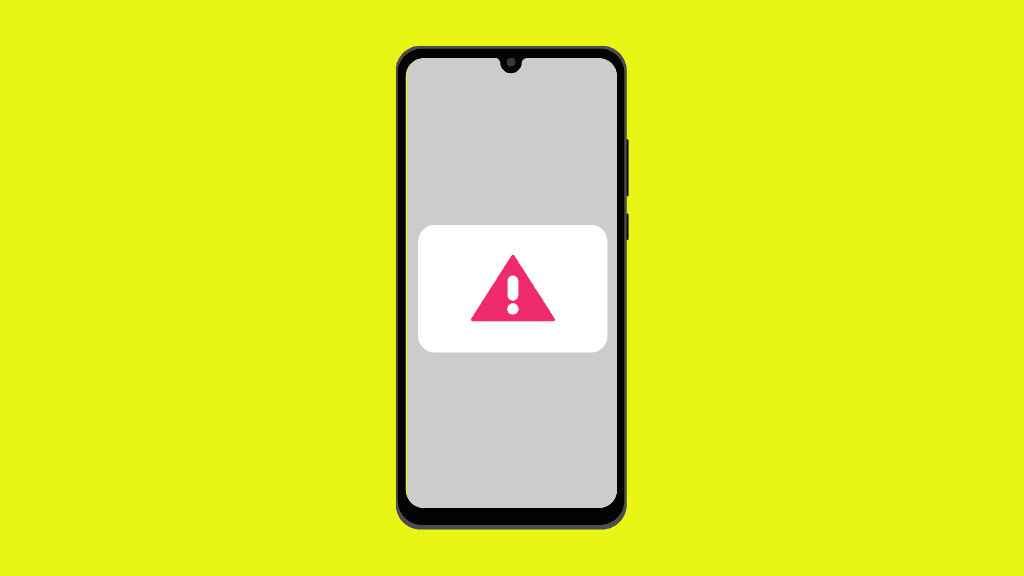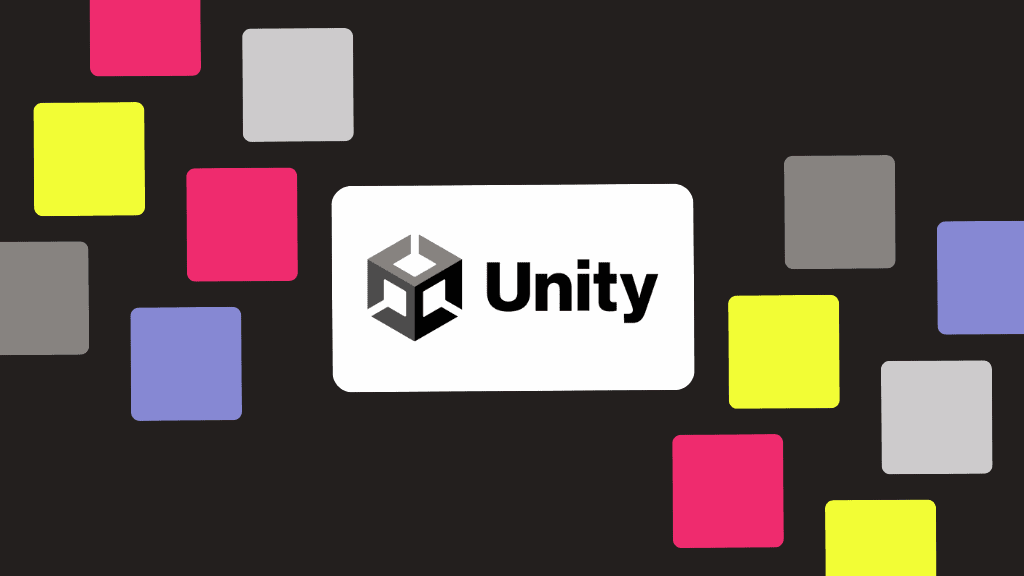
Unity, one of the most popular mobile game development engines, owes much of its success to the vibrant ecosystem of third-party plugins that extend its capabilities. These plugins offer various functionalities, ranging from advanced graphics rendering to immersive audio integration, empowering mobile engineers to create richer and more engaging games. However, this reliance on third-party plugins has a caveat: The potential for crashes and instability from third-party plugins can significantly hinder mobile game development and compromise the player experience.
To address these challenges, engineers need a robust solution to eliminate third-party plugin crashes in Unity for mobile. In this post, we will delve into the significance of third-party plugins in mobile Unity game development and the challenges they bring. Next, we will explore the various issues arising from plugin crashes and their impact on the mobile development process, as well as the overall player experience. Finally, we’ll show you how Embrace can help engineers effectively eliminate third-party plugin crashes in Unity for mobile.
Here’s an overview of what we’ll cover in this post:
- The importance of third-party plugins in Unity
- Understanding third-party plugin crashes in Unity
- Best practices for preventing third-party plugin crashes in Unity
- Using Embrace to prevent third-party plugin crashes in Unity
- Implementation and integration of Embrace for Unity
- Configuring Embrace for optimal crash prevention in Unity
The importance of third-party plugins in Unity
Third-party plugins play a crucial role in Unity game development, expanding the capabilities and functionality of the Unity engine. They are additional software components developed by external parties independent from the Unity Technologies team. These plugins can be easily integrated into Unity projects, providing engineers with ready-made solutions to enhance their games.
Extending functionality
Third-party plugins offer an extensive range of features and functionalities that go beyond the built-in tools and systems of Unity. They cover various aspects of game development, including graphics, audio, physics, networking, user interface, analytics, and more. With plugins, engineers can save time by leveraging pre-built components, freeing them to focus on other critical aspects of their game.
Customization and optimization
Plugins allow engineers to customize their projects and optimize specific functionalities to meet their unique requirements. Whether integrating a specialized rendering technique, implementing advanced physics simulations, or integrating popular advertising or monetization platforms, third-party plugins provide the flexibility to tailor the game development process to an engineer’s specific needs.
Efficiency and productivity
Using third-party plugins can significantly improve the efficiency and productivity of Unity engineers. Engineers can rely on trusted plugins to handle specific tasks instead of reinventing the wheel or spending precious development time building complex systems from scratch. This allows them to allocate more time to core gameplay mechanics, level design, and overall game polish.
Diverse plugin ecosystem
The Unity Asset Store serves as a vibrant marketplace for third-party plugins, offering engineers a wide selection of options to choose from. The ecosystem is filled with plugins created by talented engineers worldwide, ranging from free to commercial offerings. This diversity allows engineers to find the most suitable plugins that align with their project requirements and budget.
While third-party plugins bring immense benefits to Unity game development, they also come with their own set of challenges, particularly the risk of crashes. Unstable or incompatible plugins can lead to disruptions, impacting the game’s stability and hindering the development process.
Understanding third-party plugin crashes in Unity
Third-party plugins in Unity provide engineers various functionalities and tools to enhance their games. However, these plugins aren’t immune to crashes, which can significantly impact the game development process and the player experience. In this section, we will explore the common causes of third-party plugin crashes in Unity, their impact on game development, and provide examples of notable Unity plugin crash incidents, as well as their consequences.
Common causes of third-party plugin crashes in Unity
In the realm of Unity game development, it’s crucial to be aware of the common causes that contribute to third-party plugin crashes. Incompatibility issues, coding errors, resource conflicts, and memory leaks are among the key factors that can disrupt the stability and functionality of your game. By understanding these causes, engineers can proactively address them and ensure a seamless experience for players.
Incompatibility
Plugins developed for specific Unity versions or platforms may run into compatibility issues for a number of reasons. For example, a third-party plugin could be incompatible with a specific app version, C# language version, runtime environment, or platform being used. This mismatch can lead to crashes and instability within the game.
Coding errors
The quality of plugins can vary dramatically. Therefore, programming errors within plugins can result in crashes when certain conditions or interactions are encountered during gameplay.
Resource conflicts
Plugins can sometimes find themselves competing for limited resources, ultimately causing crashes when they access or modify shared assets.
Memory leaks
Improper memory management within plugins can result in memory leaks, which consume excessive resources and eventually lead to crashes.
Impact on the game development process and player experience
The impact of third-party plugin crashes extends beyond mere technical issues as these crashes can significantly affect the game development process and the overall experience for players. For example, these crashes can disrupt workflows, introduce instability, and result in performance degradation, posing challenges for engineers and diminishing the quality of the player experience.
Workflow disruption
When a plugin crashes, it disrupts the development process, forcing engineers to spend valuable time identifying and resolving the issue. This can introduce delays and hinder productivity.
Instability
Crashes can create an unstable game environment, making testing and iterating on gameplay mechanics, or implementing new features, difficult.
Performance degradation
Plugin crashes can lead to degraded performance, causing frame rate drops, input lag, or erratic behavior, directly impacting the player experience.
Examples of notable Unity plugin crash incidents and their consequences
Notable incidents involving plugin crashes serve as cautionary tales, highlighting the potential consequences that engineers and players may face. From crash-related data loss and game-breaking bugs to stability issues in multiplayer games, these incidents underscore the importance of robust plugin management and the potential impact on the development process and player experience.
Crash-related data loss
Imagine spending hours fine-tuning your game using a particular plugin, only to encounter a crash that wipes out crucial data or settings. This can set back the development process and potentially result in lost progress.
Game-breaking bugs
Some plugin crashes can trigger game-breaking bugs that prevent players from progressing or cause the game to become unplayable. These issues can lead to negative player reviews and damage the game’s reputation.
Stability issues in multiplayer games
Crashes within plugins can introduce instability in multiplayer games, resulting in frequent disconnects, synchronization issues, or even unfair advantages for some players.
Understanding the common causes of third-party plugin crashes in Unity, and their impact on game development and the player experience, is essential for engineers seeking stable, high-quality releases. By recognizing these challenges, engineers can proactively address them and seek effective solutions such as Embrace to eliminate plugin crashes and deliver a seamless gaming experience.
Best practices for preventing third-party plugin crashes in Unity
Preventing third-party plugin crashes in Unity is crucial for ensuring a stable and seamless game development experience. In this section, we will explore some best practices that Unity engineers can follow to mitigate the risks of plugin crashes. These practices include guidelines for selecting reliable third-party plugins, regular maintenance and updates for plugins, and the importance of monitoring and analyzing plugin performance with Embrace in Unity.
Guidelines for selecting reliable third-party plugins for Unity projects
When it comes to selecting reliable third-party plugins for your Unity projects, following a set of guidelines is crucial to ensure a smooth and successful integration. Factors such as reputation and reviews, compatibility and version support, and more play vital roles in determining the reliability and suitability of a plugin for your specific project needs.
Reputation and reviews
Before integrating a third-party plugin into your Unity project, research its reputation and read reviews from other engineers. Look for positive feedback, a strong community presence, and frequent updates, indicating a reliable and actively maintained plugin.
Compatibility and version support
Ensure that the plugin is compatible with the version of Unity you are using. Check the plugin’s documentation or the engineer’s website for compatibility information and supported Unity versions.
Engineer support and responsiveness
Evaluate the engineer’s support channels and responsiveness. Look for active community forums, documentation, and prompt responses to inquiries or bug reports. A supportive and responsive engineer can address issues quickly and provide timely updates.
Update frequency
Consider the frequency of updates and bug fixes for the plugin. Regular updates indicate an active development cycle and the engineer’s commitment to addressing issues promptly.
Regular maintenance and updates for plugins in Unity
Regular maintenance and updates are essential for ensuring the smooth operation of plugins in Unity. By staying updated with the latest Unity versions, regularly updating your plugins, and testing updates in a controlled environment, you can enhance the stability, performance, and compatibility of your Unity projects.
Stay updated with Unity versions
Keep your Unity version up-to-date and ensure your plugins are compatible with the latest Unity releases. Unity updates often include bug fixes and performance improvements that can address plugin-related issues.
Update plugins regularly
Frequently check for updates released by the plugin engineers and apply them to your project. Updates often include bug fixes, stability improvements, and new features that enhance the plugin’s performance and reliability.
Test updates in a controlled environment
Before applying updates to a live project, create a backup and test the updated plugins in a controlled environment. This helps identify potential compatibility issues or unexpected behavior before affecting your game’s stability.
By adhering to these best practices, Unity engineers can minimize the risks of third-party plugin crashes and ensure a smoother and more reliable game development process. The combination of careful selection, regular maintenance, and leveraging Embrace’s monitoring and analysis capabilities will contribute to your Unity project’s stability, performance, and success.
Using Embrace to prevent third-party plugin crashes in Unity
Embrace is a game-changing solution that empowers Unity engineers to tackle the challenges of third-party plugin crashes head-on. With its dedicated Unity SDK, Embrace provides a comprehensive set of tools and functionalities designed to identify, analyze, and eliminate plugin crashes, ensuring a stable and seamless game development experience. This section will explore the overview of Embrace’s Unity SDK, how it identifies and eliminates third-party plugin crashes, and the key features and benefits it offers Unity engineers.
Overview of Embrace’s Unity SDK
Embrace’s Unity SDK seamlessly integrates into Unity projects, offering a unified platform to monitor, analyze, and troubleshoot third-party plugin crashes. In addition, the SDK provides an intuitive interface and a wealth of resources to simplify managing and optimizing plugins within Unity.
How Embrace works to identify and eliminate third-party plugin crashes
Embrace intelligent Crash Reporting for Unity provides Unity engineers with real-time crash detection, with superior data capture, intelligent crash grouping, and a comprehensive out-of-the-box view into the user journey to help you resolve 3rd party plugin crashes faster.
Accurately detect crashes with superior data capture
Embrace’s Unity SDK automatically captures essential crash data (crash logs, stack traces, metadata, 3rd party plugins and every user interaction) completely out-of-the-box. This comprehensive data is collected across foreground and background sessions to help you monitor your third-party plugins and accurately reproduce the crash.
Surface high-priority crashes with intelligent crash grouping
We intelligently surface high-priority crashes using advanced groupings based on their most relevant stack frame across multiple exceptions to help teams know which crashes to resolve first. These groupings include exception information and advanced symbolication that help improve crash group accuracy. This ensures that you can identify and address the most impactful crashes affecting your users.
Spot critical crashes with real-time crash alerting
Embrace real-time alerting helps you separate important third-party plugin crashes from the noise. Teams can set up custom alerting for important revenue-generating user flows to notify engineers of any crashes caused by third-party plugins, allowing teams to quickly investigate the root cause.
Get a top-level view with crash analysis and reports
With Embrace Crash Summary teams get a top-level view into crash frequency, affected plugins, high-priority stack traces, and other valuable data that aid engineers in understanding the underlying issues.
Get to the root cause faster with User Session insights
Unsampled, contextual insights like network calls, clicks, battery level, OS version etc come completely out-of-the-box and help teams understand everything that led to the third party plugin crash. With a play-by-play of every detail that led to the crash, teams can accurately determine root cause, reproduce the issue and fix the issue for good.
Freedom to share mobile crash metrics anywhere
We give you the freedom to share your crash metrics without vendor-lock in. With Embrace Metric’s Forwarding, teams can automatically sync crash metrics to Datadog, New Relic, and soon Grafana Cloud. You can also tap our Metrics API to flexibly pull stats into whatever data stack works for your teams. With Crash Tagging (in beta) you have the power to build a rules-based attribution system that automatically assigns crash resolution to code owners or 3rd party vendors to get the details to the right team and speed up resolution.
The value Embrace brings to the development workflow
Embrace’s intelligent Crash Reporting has proven to be an invaluable asset for our customers, delivering a multitude of value-driven benefits. Here are some notable advantages they have experienced:
Crash prevention and mitigation
Armed with this information, Embrace helps engineers prevent future plugin crashes by providing guidance and recommendations that help engineers optimize their code, eliminate potential crash triggers, and ensure the stability of their Unity projects.
Enhanced stability and user experience
Using Embrace, Unity engineers can eliminate third-party plugin crashes, enhancing stability and a seamless user experience for players. This translates into higher player satisfaction, positive reviews, and increased retention.
Streamlined development workflow
Embrace’s user-friendly interface and actionable insights streamline the development workflow. It reduces the time spent on debugging and troubleshooting plugin crashes, allowing engineers to focus on creating engaging gameplay and pushing boundaries.
Embrace empowers Unity engineers to proactively address third-party plugin crashes and ensures a stable, high-performing game development process. By leveraging its Unity SDK, engineers can enhance their projects, deliver exceptional gaming experiences, and eliminate the disruptions caused by plugin crashes. In the next section, we will explore the implementation and integration of Embrace into existing Unity projects, providing practical guidance on leveraging its potential to its fullest.
Implementation and integration of Embrace for Unity
Implementing Embrace in your Unity project is a straightforward process that can significantly enhance your ability to prevent third-party plugin crashes. In this section, we will explore the compatibility of Embrace with Unity mobile versions and mobile platforms, provide a step-by-step guide to integrating Embrace into Unity projects, and offer insights on configuring Embrace for optimal crash prevention.
Compatibility of Embrace with Unity mobile versions and platforms
Embrace is designed to be compatible with various mobile versions of Unity, ensuring flexibility and accessibility for mobile app engineers. It supports a wide range of mobile Unity versions, including both older and newer releases. Additionally, Embrace is platform-agnostic, meaning it can be used in mobile Unity projects developed for iOS and Android.
Step-by-step guide to integrating Embrace into Unity projects
In this step-by-step guide, we will walk you through the seamless integration of Embrace into your mobile Unity apps, empowering you to optimize performance, identify and prevent crashes, and enhance the overall user experience.
Step 1: Sign up and integrate Embrace Unity SDK
First, create a free account with Embrace, integrate the Embrace SDK into your Unity app, set up your Embrace API key and token in the Embrace editor, and verify your integration. Embrace provides easy-to-follow documentation and guides for SDK integration, making the process seamless and hassle-free.

























